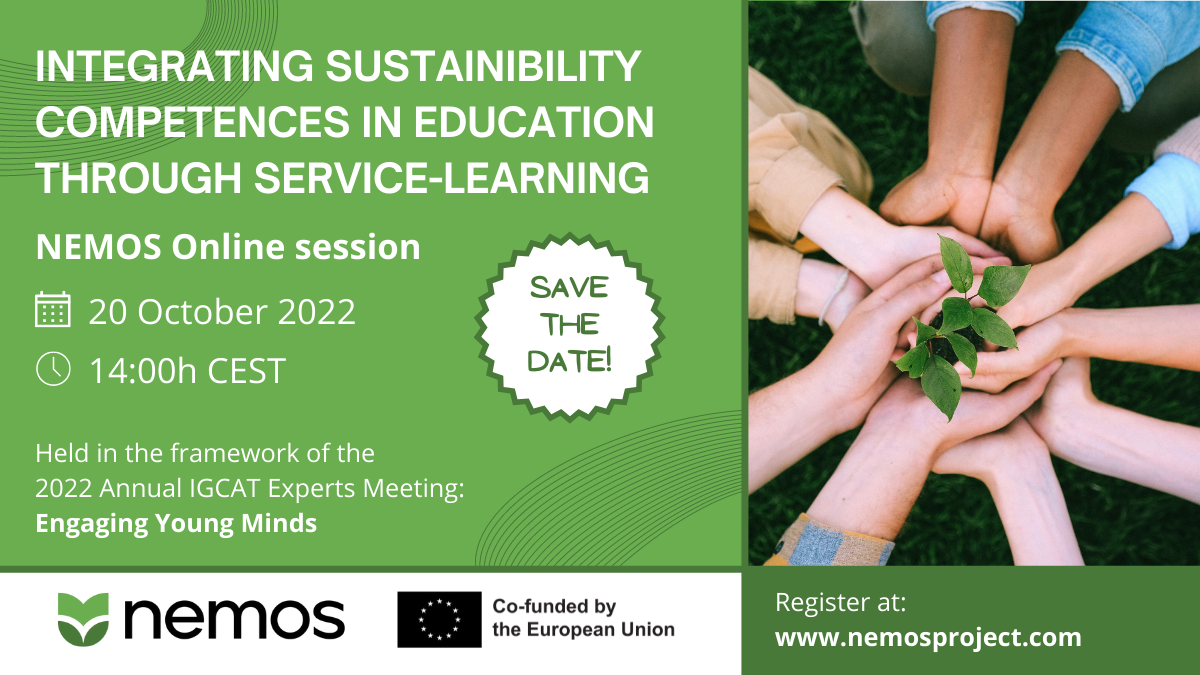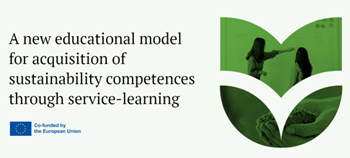NEMOS news update - October 2022

The EU Erasmus project ‘NEMOS A new educational model for acquisition of sustainability competences through service-learning’ is well underway, with completion of the first Objective - Defining a food sustainability profile (FSP) through a community building methodology.
The project is led for TU Dublin by Dr Julie Dunne, with Dr Rena Barry-Ryan and Dr Cormac McMahon, the University Sustainability Education & Innovation manager. The School has recruited NEMOS Fellows Sara Boyd, Greg Burke, Dr Orla Cahill, Fintan Moran, Dr David O’Connor, Dr Azza Silotry Naik, Dr. Ciara Walsh. Updates on their work will be provided as it progresses.
Work will now commence on the remaining objectives - Defining a methodological handbook (MH) in Food sustainability through service learning (SL, known as Students Learning with Communities); Defining assessment tools of FSP and MH by co-creation practices in SL; Defining a new educational model suitable for the acquisition of sustainability competences through green pedagogies and SL.
TU Dublin was also involved in the first international dissemination event for NEMOS on the 20th Oct. Participants included students from the BSc in Food Innovation, Michael O’Neill and Sarah Ging, as well as TU Dublin Student’s Union President Brian Jordan, graduate of the BSc In Nutraceuticals in Health and Nutrition.

NEMOS Project Result 1 – Summary for TU Dublin
An analysis of the four stages of the BSc Food Innovation for existing levels of sustainability has been carried out. It shows no incidence where the category of sustainability focused modules is highest. When sustainability focused and in-mind modules are combined, Stage 4 has the highest level of sustainability, with Stage 2 the lowest. Barriers to sustainability were identified, and categorised as economical, supply chain issues, labour, knowledge, awareness, investment, government, human nature, climate change, environmental, social sustainability, capitalism, low adoption of Innovation, and food safety.
Key food related Sustainability concepts that will be useful to inform the development of a sustainability profile and for the review of food degrees were identified and categorised as Farming Practices, Climate change direct impacts, Environment, Agrifood Circular Bioeconomy, Waste reduction, Measuring and benchmarking, Food Safety and Regulatory Affairs, Food product development, Sustainable and Ethical Food Business. In all, 70 competencies were identified.
In terms of sustainability and University education, the findings are within two categories. The curriculum, including the technical knowledge and transferable skills; and the operation of the University as a sustainable organisation.
Staff are interested in food sustainability, and most have aspects included within their modules. Nonetheless a need for professional development within their food related discipline area, in general sustainability, and in pedagogies to embed sustainability were identified.
Meanwhile, almost all students identify the need for specific knowledge and training in sustainability issues as a necessary part of their professional education. Most would be interested in sustainable development projects or activities. The interest in participating in service learning was high across all those surveyed and interviewed. Specific guidance on integrating sustainability through service learning was provided by the University service-learning (Students Learning with Communities) lead.


